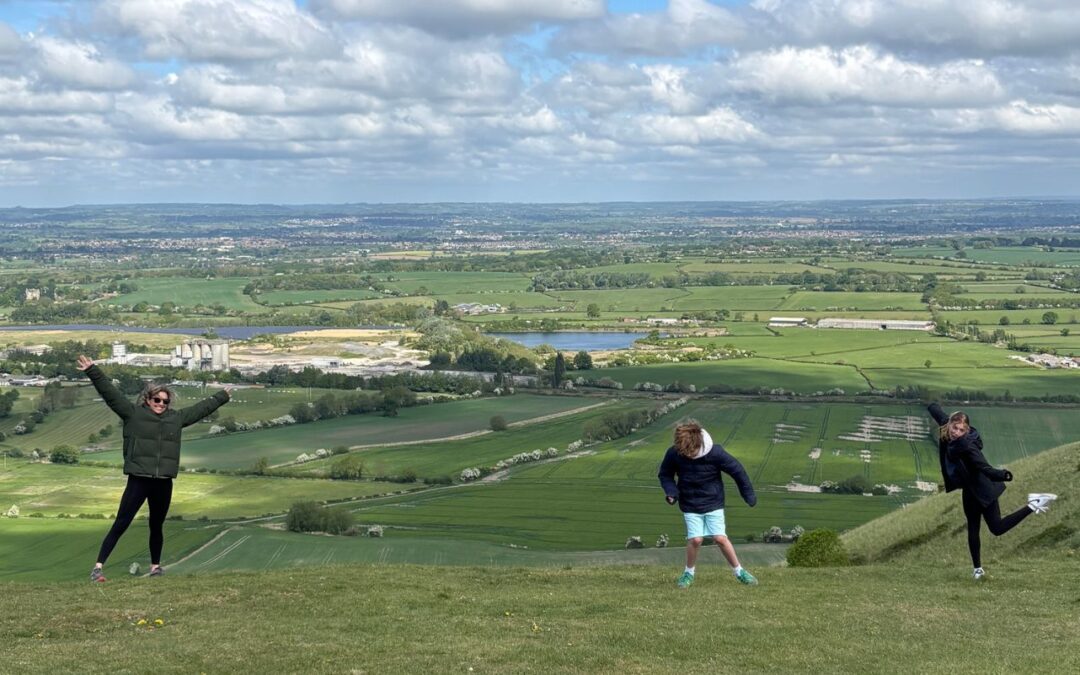Isn’t it absolutely beautiful at the moment? Hedgerows bursting with blossom, fields a vibrant green, and birdsong ringing out from dawn ‘til dusk.
I’ve been deep in dad mode these past few weeks. “You know, kids, you can travel the world and still crave this scene — the green and pleasant lands of the English countryside.”
I remember that feeling from my younger days, being away on my travels, exploring the world. All I wanted was to be back among the views we’re lucky enough to call home. Friend of the farm Dave Jaquin encapsulated this beautifully in his Instagram post the other day, which is worth a look here.
Over the bank holiday, we took the kids up to the Westbury White Horse. My folks used to take my sisters and me when we were kids, armed with some fish and chips, but I hadn’t been back for years. My son Henry has been pestering us to visit after spotting it from the garden on clear days — a distant landmark that had clearly captured his imagination.
I’d forgotten just how breathtaking it is, especially at this time of year. The views stretch right across the Wiltshire and Somerset countryside, all the way to our own valley. That patchwork quilt of farmers’ fields, occasionally interrupted by a lone factory or a building site, tells a story of a land that’s been worked and shaped over generations.
It gets you thinking — about history, about legacy, and about how much of this landscape has been carved out by farming families over hundreds of years.
There’s a threat in every generation, I suppose. But the one facing us now really does worry me. If this government presses ahead with the proposed changes to inheritance tax for family farms, we could see many of them split up and sold off — and they won’t be sold to those wanting to continue the farming legacy, that’s for sure. I’m sure there are economic arguments behind it. Why should a farm be treated differently from any other asset?
But I believe this is different. It’s not like selling off a house that’s been passed down. With a home, sometimes the numbers just about work — there’s a bit left over after the taxman takes his cut.
But these farms? They’re not run for profit. They’re run for purpose. For some families, it’s all they’ve ever known. Losing that isn’t just about money — it’s the loss of a home, a business, and a way of life all in one.
There will come a time, I’m sure, when we’ll need our own food again. And when that day comes, we’ll look back at the patchwork quilt of fields and realise just how vital they are. We can’t let it all become solar farms, factories, housing estates, or token plots of scrubland, rewilded to allow for the former.
Can we?
